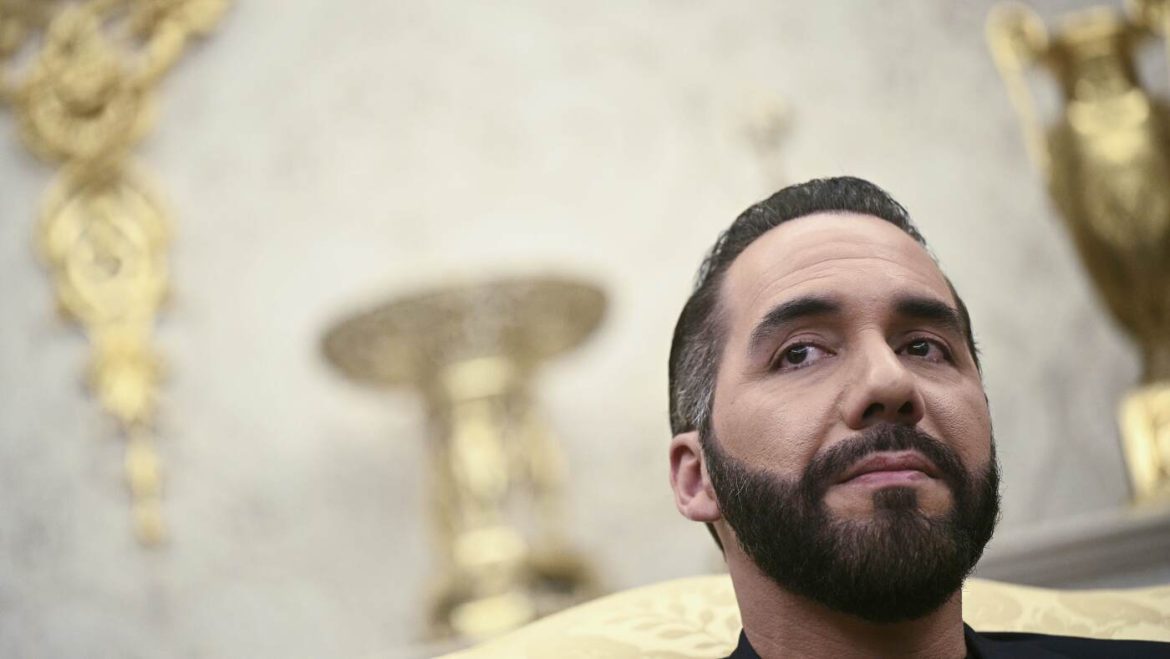The Bukele Administration: A Study in Authoritarian Tendencies
In the annals of Central American politics, few figures have sparked as much controversy and debate as El Salvador’s President Nayib Bukele. His recent order to arrest five heads of bus companies for defying a government mandate to offer free transport has once again brought his authoritarian tendencies to the forefront. This incident is not an isolated event but rather a symptom of a broader pattern of governance that raises serious concerns about the state of democracy and human rights in El Salvador.
The Free Ride Policy and Its Defiance
The controversy began when President Bukele announced that all bus fares would be completely free for a week due to construction work on a major highway. This decision was ostensibly made to alleviate the inconvenience caused to the public by the ongoing construction. However, when several bus company heads refused to comply, Bukele took to social media to order their arrest, accusing them of “sabotaging the country.” This heavy-handed response is a stark example of Bukele’s willingness to use his authority to enforce his will, regardless of the legal or ethical implications.
A Pattern of Authoritarianism
Bukele’s actions are part of a broader pattern of authoritarian behavior that has characterized his presidency. Over the past year, El Salvador’s security forces have arrested more than 36,000 people, often without due process or legal justification. This mass arrest campaign has been described as “punitive populism,” where the government uses the threat of violence and imprisonment to maintain control and suppress dissent. The arrest of the bus company heads is just the latest in a series of actions that have raised alarms about the erosion of civil liberties in El Salvador.
The Use of Social Media as a Tool of Governance
One of the most striking aspects of this incident is Bukele’s use of social media to issue orders to the police. This method of governance is unprecedented in modern democracies and raises serious questions about accountability and transparency. By bypassing traditional channels of communication and decision-making, Bukele has effectively created a parallel system of governance that is answerable to no one but himself. This use of social media as a tool of governance is a dangerous precedent that undermines the rule of law and the principles of democratic governance.
The Impact on Civil Liberties and Human Rights
The arrest of the bus company heads is not just a political maneuver but has real implications for civil liberties and human rights in El Salvador. The government’s use of mass arrests, arbitrary detentions, and the suppression of dissent has created a climate of fear and intimidation. Human rights organizations have documented widespread abuses, including torture and extrajudicial killings, all carried out in the name of maintaining public order. The arrest of the bus company heads is a clear example of how the government is willing to use its power to suppress any form of dissent, no matter how minor.
The International Community’s Response
The international community has been largely silent on the issue, but there have been some calls for greater scrutiny of Bukele’s actions. Human rights organizations and some governments have expressed concern about the erosion of democracy and the suppression of civil liberties in El Salvador. However, the response has been muted, and there has been little concrete action to hold Bukele accountable for his actions. This lack of international pressure has emboldened Bukele and allowed him to continue his authoritarian policies with impunity.
The Future of Democracy in El Salvador
The arrest of the bus company heads is a wake-up call for those who care about democracy and human rights in El Salvador. It is a clear indication of the direction in which the country is headed under Bukele’s leadership. Unless there is a concerted effort to hold Bukele accountable and to restore the rule of law, El Salvador risks descending further into authoritarianism. The international community has a crucial role to play in supporting civil society and human rights organizations in El Salvador and in applying pressure on the Bukele administration to respect democratic norms and human rights.
Conclusion: A Call to Action
The arrest of the bus company heads in El Salvador is a stark reminder of the dangers of unchecked power and the importance of upholding democratic principles. Bukele’s actions are a clear indication of his authoritarian tendencies and his willingness to use any means necessary to maintain control. The international community must take a stand and demand accountability from the Bukele administration. It is time to send a clear message that the suppression of civil liberties and human rights will not be tolerated. The future of democracy in El Salvador depends on it.


